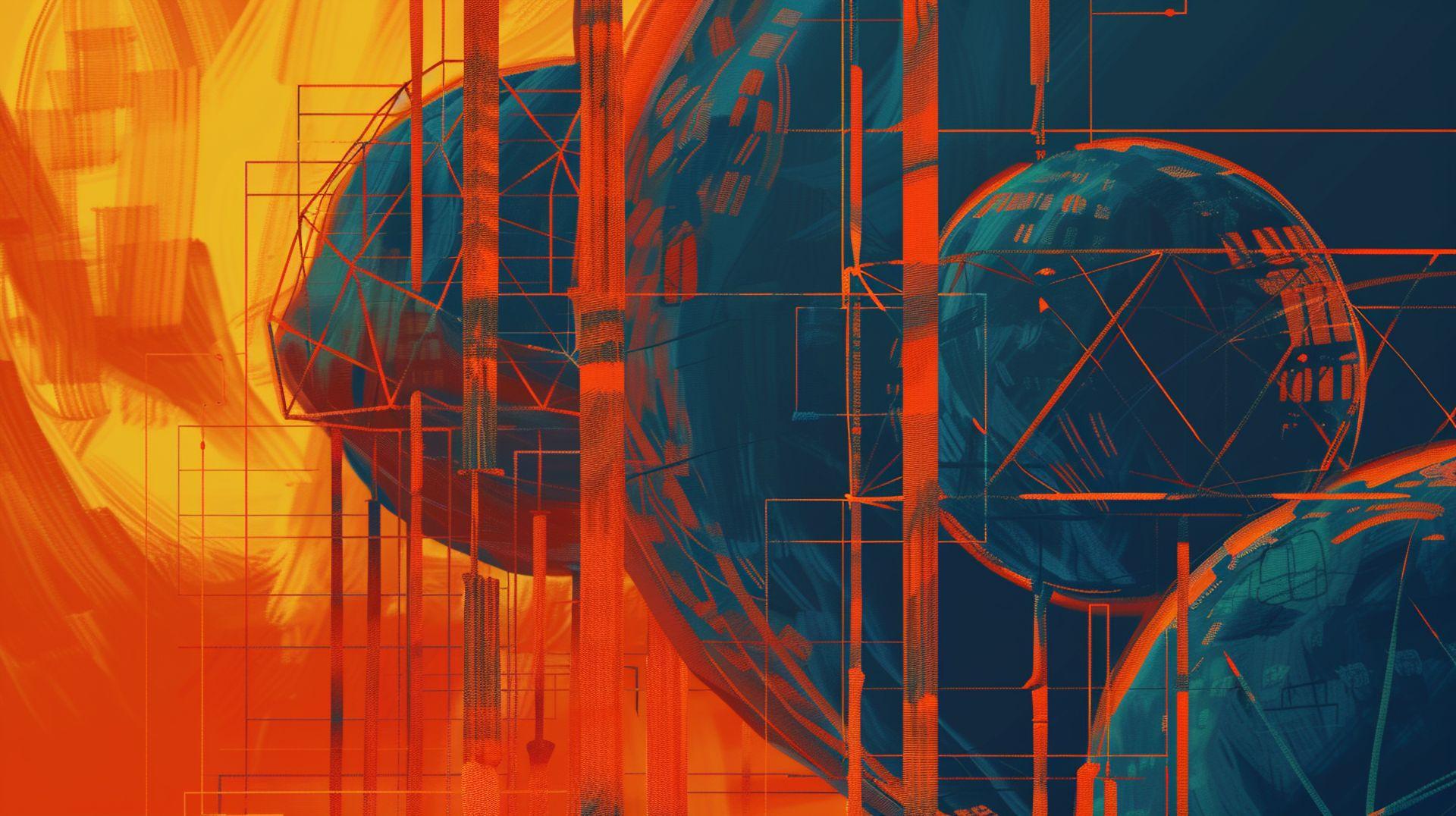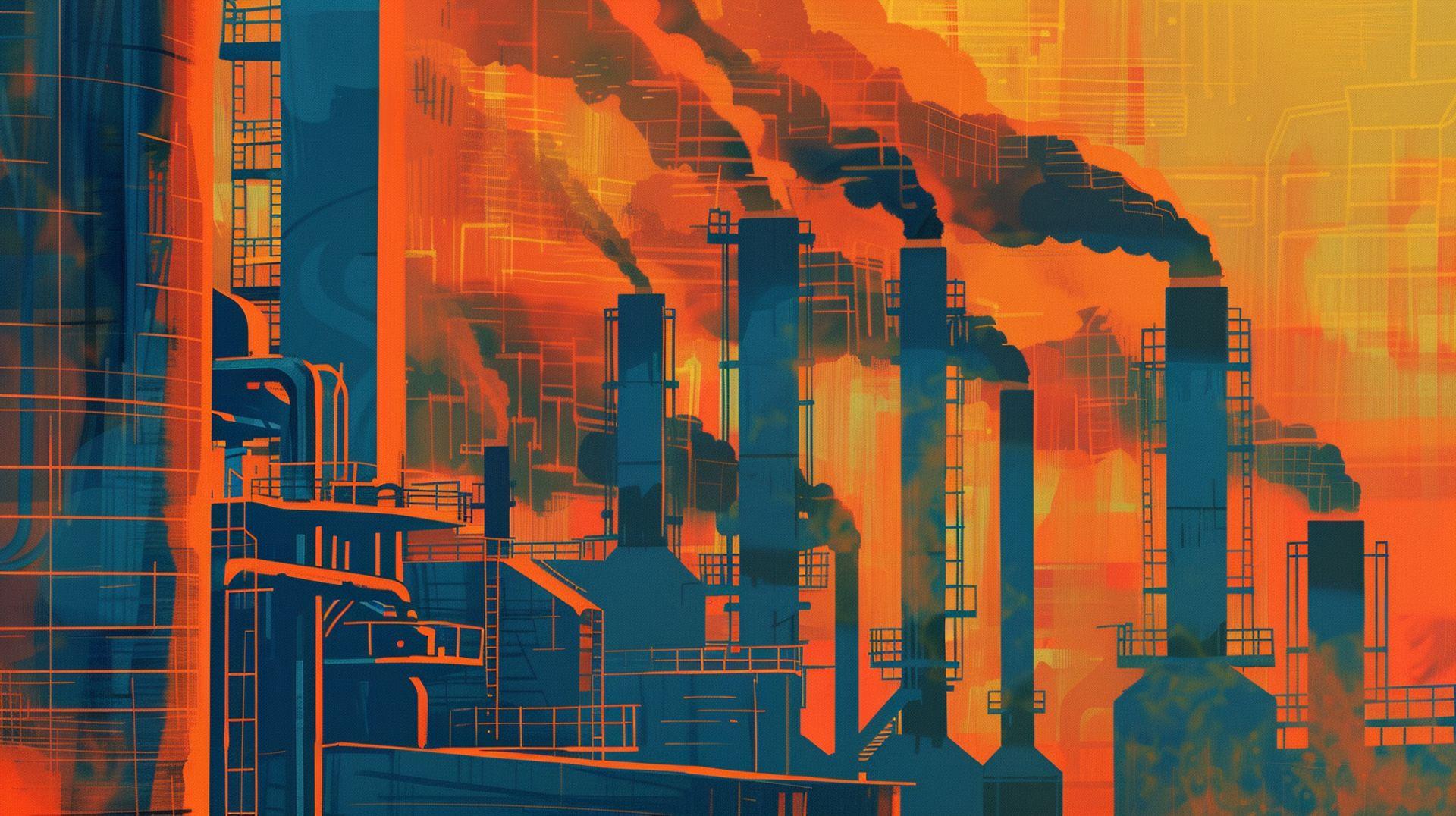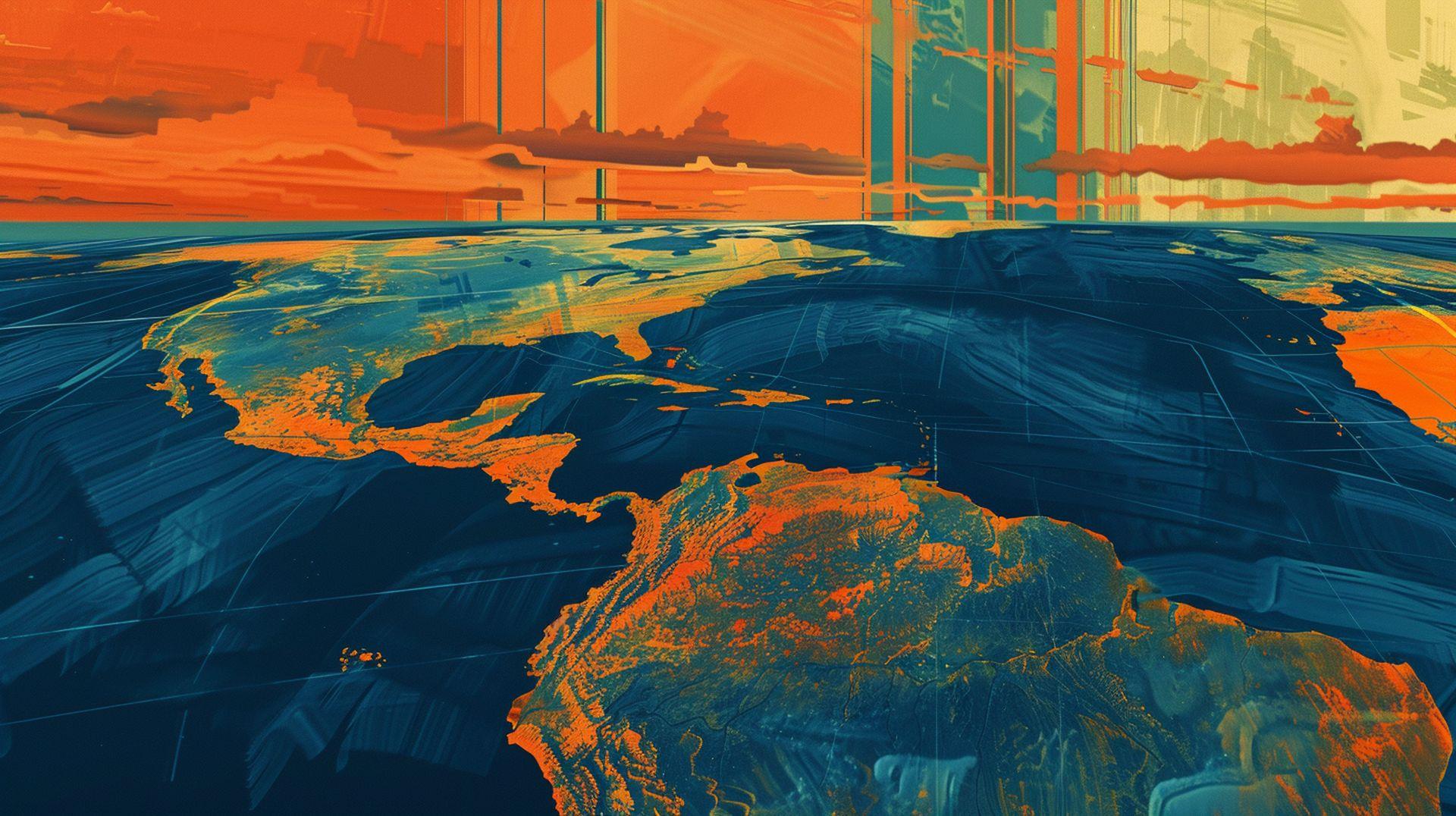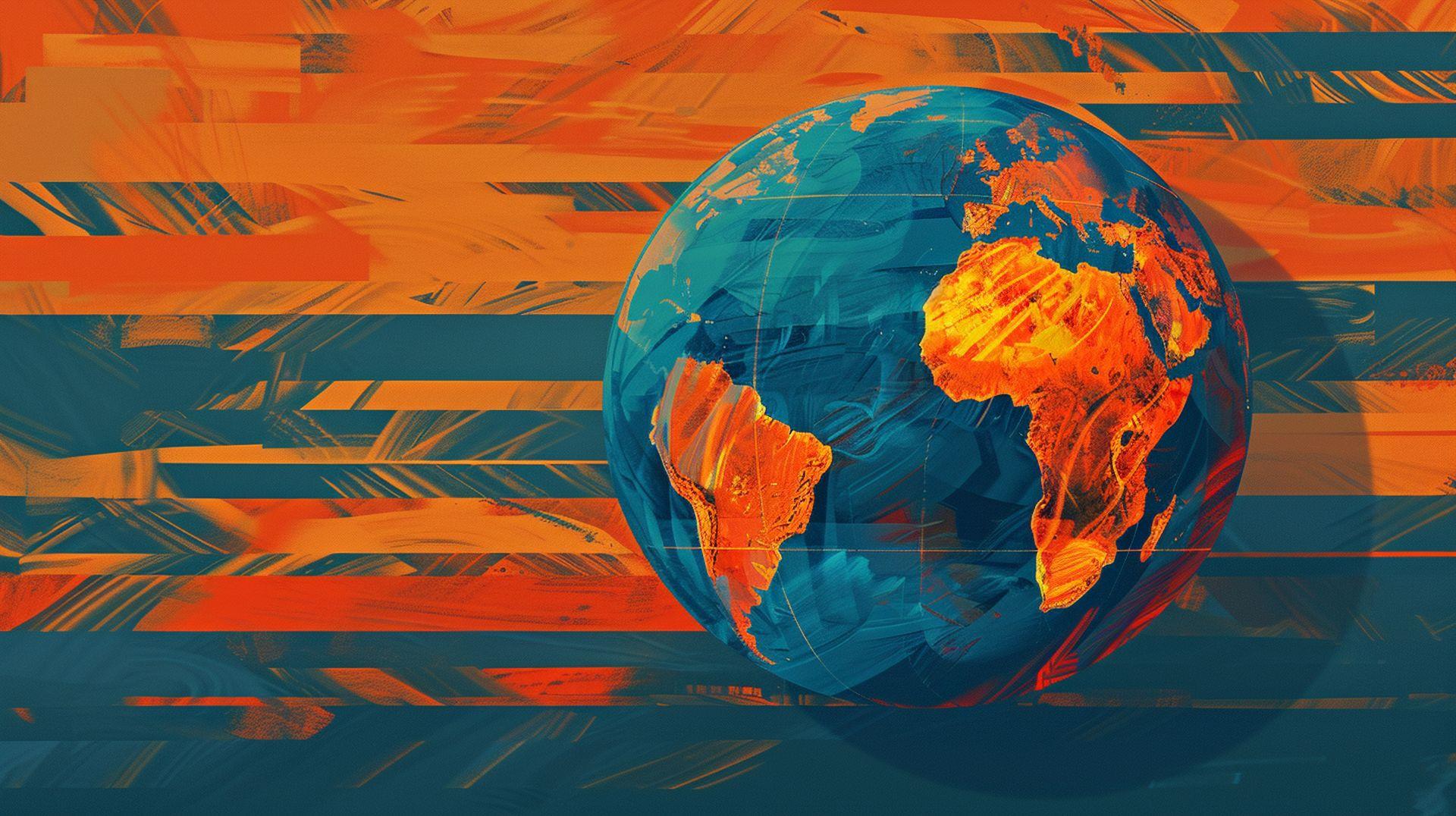Why do we need AI? It’s not just a question – it’s reshaping our world faster than you can say “Hey Siri.”
Artificial intelligence is everywhere these days. It’s in your pocket, helping your phone recognize your face. It’s in your email, sorting out spam. It’s even in your car, making parking easier. AI is like a super-smart helper that never gets tired. But AI isn’t just about making cool gadgets. It’s changing how we work, learn, and live. Doctors use AI to spot diseases earlier. Scientists use it to understand climate change better. Artists use it to create new kinds of music and art.
AI is really good at handling big piles of information. It can find patterns that humans might miss. This helps businesses make smarter choices. It helps researchers make new discoveries. And it helps solve tricky problems that have stumped us for years. One of the best things about AI is that it can do boring or dangerous jobs. This frees up people to do more interesting work. For example, AI can check for problems in factories, so workers can focus on making things better.
AI is also helping us understand ourselves better. By looking at lots of data about how people behave, AI can give us new insights into human nature. This could help us build a fairer, healthier society. Of course, AI isn’t perfect. Like any tool, it can be used well or badly. That’s why it’s important for everyone to understand a bit about how AI works. The more we know, the better we can make sure AI is used to help people, not harm them.
Why do we need AI, why is it becoming an indispensable tool?
Let’s take a fresh look at AI, shall we?
Think about it: AI is freeing up our mental bandwidth. We’re offloading the mundane mental tasks, giving our brains more room to play in the realms of creativity and innovation. It’s not about replacing our smarts; it’s about amplifying them.
AI’s knack for pattern recognition? It’s like we’ve given ourselves a pair of super-powered glasses. Suddenly, we’re seeing connections in data that were invisible to us before. It’s not laziness – it’s like upgrading our collective vision. And those AI predictions everyone’s talking about? We’re not blindly following a digital fortune teller. We’re arming ourselves with insights, making more informed decisions. It’s like having a really smart friend who’s read every book in the library.
Sure, AI makes things more efficient. But efficiency isn’t just about cold, hard productivity. It’s about freeing up time and mental energy for the things that make us human – art, relationships, discovery, wonder. So maybe instead of worrying about what we might lose, we should be getting excited about the new frontiers we can explore. With AI as our sidekick, who knows what incredible things we might achieve?

Why is AI so important to us?
AI is crucial because it enhances our capabilities and transforms how we interact with the world. Its importance lies in its ability to process vast amounts of data quickly and accurately, enabling advancements across various domains. In everyday life, AI technologies underpin many of the conveniences we take for granted, from smart assistants like Siri and Alexa to recommendation systems on streaming platforms.
In the workplace, AI optimizes productivity by automating routine tasks, leading to cost savings and allowing humans to concentrate on more creative and strategic activities. This shift not only boosts efficiency but also fosters innovation by freeing up time for employees to tackle complex problems.
AI’s importance is also evident in its role in advancing scientific research and development. By analyzing large datasets, AI accelerates discoveries in fields such as drug development, climate modeling, and material science. Furthermore, AI’s capacity to learn and adapt from new information means it continually evolves, enhancing its utility and relevance.
How can AI help the world?
AI has the potential to address some of the world’s most pressing challenges by leveraging its analytical power and adaptability. In healthcare, AI can facilitate early disease detection and personalized treatment, potentially revolutionizing patient care and extending lives. AI-driven diagnostics, predictive analytics, and drug discovery are already making significant strides in combating diseases.
In agriculture, AI optimizes crop management and resource use, promoting sustainable farming practices. AI technologies can predict weather patterns, analyze soil conditions, and manage irrigation more efficiently, thus increasing food security and reducing environmental impact.
AI also plays a crucial role in environmental conservation. It aids in monitoring deforestation, tracking wildlife populations, and analyzing climate change data, supporting efforts to protect ecosystems and mitigate global warming.
In disaster response, AI improves prediction models for natural disasters and enhances emergency response systems, helping communities prepare for and recover from events like earthquakes and hurricanes.
Artificial intelligence serves several key purposes.
1. Automation of repetitive tasks
AI excels at handling monotonous, repetitive work with speed and precision. It can take over tasks like data entry, sorting, and basic customer service inquiries. This automation allows people to step away from mind-numbing jobs and put their skills to use on more engaging, thought-provoking work. For example, in manufacturing, AI-powered robots can assemble products tirelessly, letting human workers focus on design, quality control, and improving production processes.
2. Processing vast amounts of data quickly
The ability to crunch enormous datasets is one of AI’s strongest suits. While a human might take weeks or months to go through millions of records, AI can do it in mere seconds or minutes. This rapid processing power is invaluable in fields like genomics, where AI can sift through genetic data to find links between genes and diseases. It’s also crucial in business analytics, helping companies understand customer behavior, market trends, and operational efficiency at a scale and speed previously unthinkable.
3. Spotting patterns humans might miss
AI’s pattern recognition capabilities often surpass human abilities, especially when dealing with complex or subtle patterns in large datasets. In healthcare, AI systems can analyze medical images to detect early signs of diseases that human doctors might overlook. In cybersecurity, AI can identify unusual patterns in network traffic that could indicate a security breach, catching threats that might slip past human analysts.

4. Making predictions based on complex data
By analyzing historical data and current trends, AI can make surprisingly accurate predictions about future events or outcomes. This predictive power is useful in many areas. In finance, AI models can forecast stock prices and economic trends. In agriculture, AI can predict crop yields based on weather patterns, soil conditions, and other factors. Urban planners use AI to predict traffic flow and optimize public transportation routes.
5. Enhancing decision-making processes
AI tools can support human decision-making by providing data-driven insights and recommendations. They can process multiple variables simultaneously, considering factors that humans might overlook or struggle to balance. For instance, in supply chain management, AI can help optimize inventory levels by considering factors like historical sales data, current market trends, production capacity, and transportation costs. In healthcare, AI can assist doctors in choosing the best treatment plans by analyzing patient data, medical research, and treatment outcomes.
6. Improving efficiency in various operations
AI boosts efficiency across many industries. In manufacturing, AI-powered robots work tirelessly, increasing production speed and consistency. Logistics companies use AI to plan optimal delivery routes, saving time and fuel. Retailers employ AI to manage inventory, ensuring popular items are always in stock while reducing waste from overstocking.

7. Tackling problems too complex for human minds alone
Some challenges are simply too intricate for human brains to solve quickly. AI shines in these situations. Climate scientists use AI models to understand and predict complex weather patterns. In drug discovery, AI can simulate millions of potential molecular combinations, speeding up the process of finding new medicines.
8. Offering 24/7 availability for certain services
Unlike humans, AI doesn’t need sleep or breaks. This allows for round-the-clock service in many areas. Customer support chatbots can answer questions at any hour. AI-powered health monitoring systems can keep watch over patients continuously, alerting medical staff if there’s a problem.
9. Reducing human error in critical processes
Humans can make mistakes, especially when tired or distracted. AI can help minimize these errors in crucial tasks. In aviation, AI systems assist pilots and air traffic controllers, enhancing flight safety. In surgery, AI-guided tools can help surgeons perform precise movements, reducing the risk of complications.
10. Enabling new forms of scientific research and discovery
AI opens up new possibilities in scientific research. It can analyze enormous datasets from space telescopes, helping astronomers discover new planets and understand the universe better. In biology, AI models can predict protein structures, a crucial step in understanding diseases and developing new treatments. AI also aids in analyzing complex systems like ecosystems or social networks, uncovering patterns that drive their behavior.
Advantages and disadvantages of artificial intelligence
Artificial intelligence brings both benefits and drawbacks. Understanding these can help us use AI wisely and prepare for its effects on society.
Advantages
- Increased productivity: AI can work non-stop, completing tasks faster than humans. This boost in productivity can lead to economic growth and free up human workers for more creative pursuits.
- Accuracy and precision: In many tasks, AI outperforms humans in terms of accuracy. This is particularly valuable in fields like medical diagnosis or quality control in manufacturing.
- Data analysis: AI can process and analyze huge amounts of data quickly, uncovering insights that might take humans years to find. This capability is transforming fields like scientific research and business analytics.
- Personalization: AI enables highly personalized experiences in areas like entertainment, education, and marketing. It can tailor content and recommendations to individual preferences and needs.
- Safety improvements: In dangerous jobs like mining or disaster response, AI-powered robots can take on risky tasks, keeping humans out of harm’s way.
- Healthcare advancements: AI is helping to develop new drugs, improve diagnostic accuracy, and even predict health issues before they become serious.
- Environmental benefits: AI can optimize energy use, improve recycling processes, and help in monitoring and protecting ecosystems.
- Accessibility: AI-powered tools like voice assistants and translation software are making technology more accessible to people with disabilities.

Disadvantages
- Job displacement: As AI takes over more tasks, many jobs may become obsolete. This could lead to unemployment and economic inequality if not managed carefully.
- Privacy concerns: AI often relies on large amounts of data, raising questions about data collection, storage, and use. There’s a risk of personal information being misused or falling into the wrong hands.
- Bias and fairness issues: AI systems can inherit and amplify human biases present in their training data. This can lead to unfair or discriminatory outcomes in areas like hiring, lending, or criminal justice.
- Lack of human touch: In fields like healthcare or education, AI may lack the empathy and emotional intelligence that human professionals provide.
- Security risks: As AI systems become more integrated into critical infrastructure, they could become targets for cyberattacks, potentially causing widespread disruption.
- Dependency and deskilling: Over-reliance on AI could lead to a loss of human skills and knowledge. If AI systems fail, we might lack the ability to perform tasks manually.
- Ethical dilemmas: AI raises complex ethical questions, especially in areas like autonomous weapons or decision-making in healthcare. It’s challenging to program machines with human values and moral reasoning.
- Economic concentration: The companies that control the most advanced AI technologies could gain enormous economic power, potentially leading to monopolies and reduced competition.
- Unpredictability: As AI systems become more complex, their decision-making processes can become opaque, making it hard to understand or predict their actions.
- Energy consumption: Training and running large AI models requires significant computing power, which can have a substantial environmental impact due to energy consumption.
Balancing these advantages and disadvantages is crucial as we continue to develop and deploy AI technologies. It requires ongoing dialogue between technologists, policymakers, and the public to ensure that AI is used in ways that benefit society.
Best AI use cases by industry
AI technology is finding valuable applications across various sectors. Here’s a look at how different industries are putting AI to work:
AI in healthcare
AI in healthcare is changing how doctors work and patients get care. Hospitals use AI to look at medical images and find signs of illness. This helps doctors spot problems early. AI also helps make new medicines faster. It looks at lots of information to suggest the best treatment for each patient. In some hospitals, AI helps manage schedules and predict when they’ll be busy.
AI in finance
The finance world is using AI too. Banks use it to spot strange patterns that might mean someone is trying to cheat the system. AI can make quick decisions about buying and selling stocks. It helps decide if someone should get a loan by looking at many details about them. When bank customers have questions, sometimes they talk to an AI system instead of a person.
AI in education
Schools and teachers are finding ways to use AI. Some learning programs change to fit each student’s needs. AI can grade some types of tests, which gives teachers more time to teach. It can also tell teachers when a student might need extra help. Some students use AI tutors to get help with their homework at any time.

AI in retail
Stores use AI to make shopping easier and run their business better. When you shop online, AI might suggest things you’d like based on what you’ve bought before. It helps stores know how much stuff to keep in stock. AI can change prices quickly based on things like how popular an item is. In some online stores, you can take a picture of someth
AI in sports
AI in sports is helping teams and athletes perform better. Coaches use AI to study how players move and suggest ways to improve. It looks at videos of games to spot patterns and help make game plans. Some teams use AI to decide which players to pick for their team. During big games, AI helps TV channels quickly show interesting facts about what’s happening.
AI in manufacturing
In factories, AI is making things run smoother. Robots with AI can do tasks that are boring or dangerous for people. These robots can work all day and night without getting tired. AI also checks products to make sure they’re good quality. It can predict when machines might break down, so they can be fixed before they cause problems. This helps factories make things faster and with fewer mistakes.
AI in cinema
The movie industry is using AI in many ways. When making films with lots of special effects, AI helps create realistic-looking scenes. It can make crowds of people or add details to backgrounds. Some filmmakers use AI to help write scripts or come up with story ideas. AI can look at lots of old movies to suggest new ideas. In movie theaters, AI helps decide which movies to show and when, based on what people like to watch.

Is AI a threat to humanity?
Back to our original question: Why do we need AI? While AI undeniably offers transformative benefits, it’s also crucial to consider the potential risks and challenges that accompany its development. In a scenario where things go awry, the necessity of AI might become more apparent, especially if these risks lead to significant disruptions.
One pressing concern is the potential for job displacement. As AI systems become increasingly adept at automating tasks traditionally handled by humans, we might face economic upheaval and a need for widespread reskilling. The automation of jobs could result in substantial shifts in the labor market, necessitating robust strategies to prepare workers for new opportunities and mitigate adverse impacts on employment.
Ethical issues also pose a significant challenge. AI systems can inherit and perpetuate biases present in their training data, potentially leading to unfair outcomes in critical areas like hiring, law enforcement, and financial services. Addressing these biases and ensuring transparency in AI decision-making are essential to prevent unjust practices and maintain public trust. While AI offers substantial benefits, its potential threats to humanity highlight the need for careful management, ethical considerations, and robust regulations.
Ethical AI: AstraZeneca’s guidelines on applicable regulations
Image credits: Kerem Gülen/Midjourney






